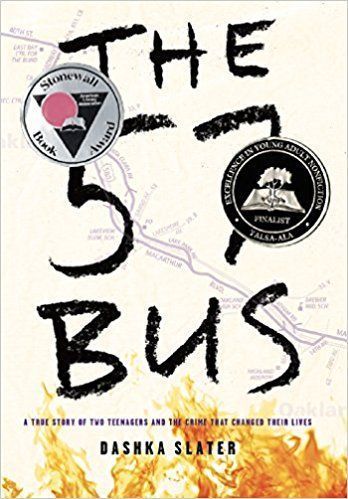
The 57 Bus A True Story of Two Teenagers and the Crime That Changed Their Lives
This riveting nonfiction book for teens about race, class, gender, crime, and punishment tells the true story of an agender teen who was set on fire by another teen while riding a bus in Oakland, California.
Reviews
yasi@middleschoolbf
Finn James@finnmemorial
Paula Plaza Ponte @paulapp
Ryan @ryandoesread
Gwyn Dill@gwyndill
Lamia Hajani@lamafoyomama
Jeannette Ordas@kickpleat
priya@purpleflamingo
Nadine @intlnadine
Emily@readem
Jeni Enjaian@jenienjaian
SnarkByThePage@snarkbythepage
Bec@becandbooks
Jennifer Crumbling@Snarkbythepage
Asha Sidhu@asidhu
amelia <3@yourlocalbookaddict
Kjersti Pratt@kpratt
Jae@jaeslibrary
Kayla Higginbotham@kaylahigginbo
Arianna@annaira
Keira Walton @keiraw
Lisa Lindquist @lisalindquist
Abi Baker@wicdiv
Jen@fierycracker81